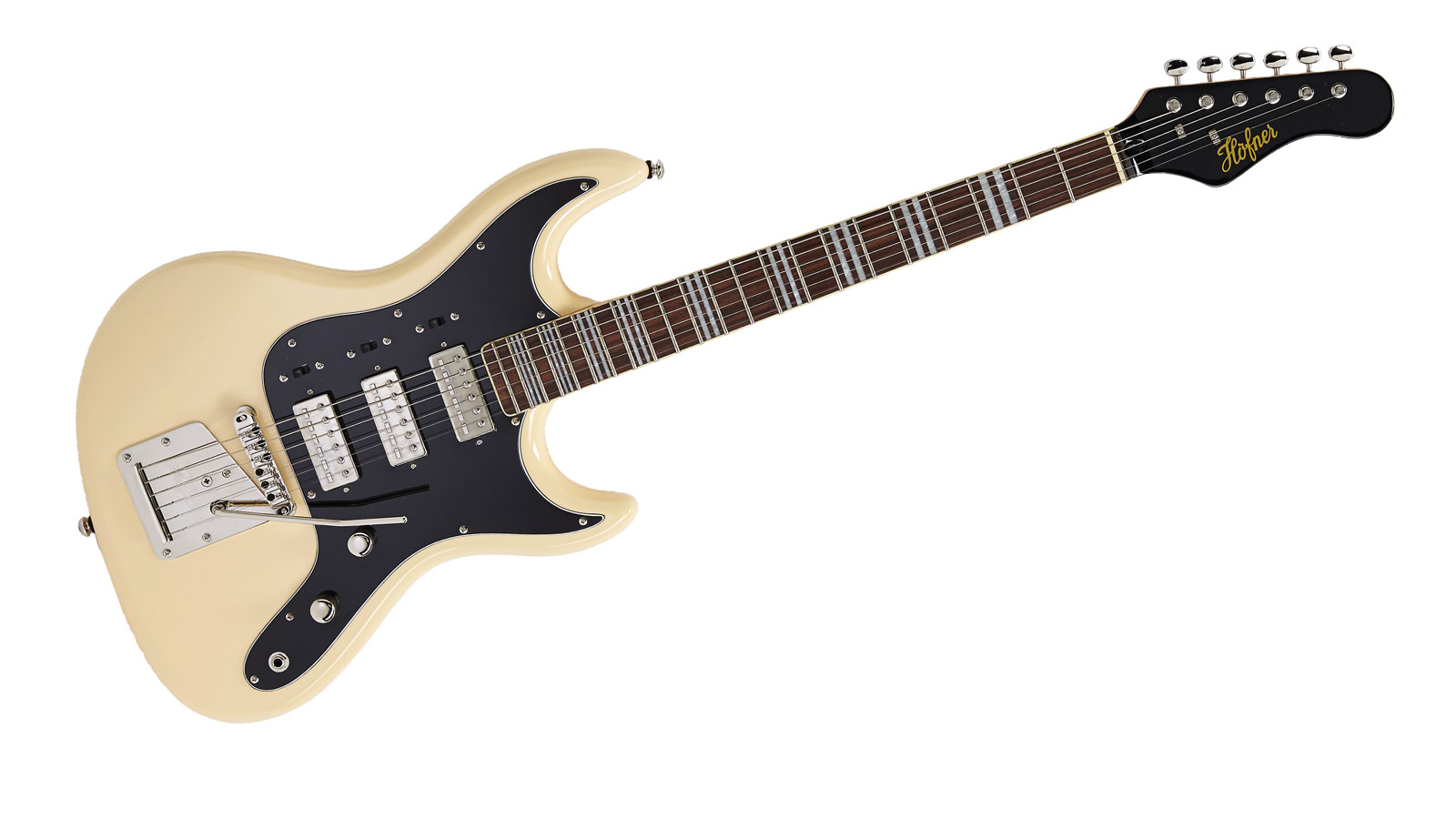MusicRadar Verdict
The Galaxie was odd in its time and it's odd now, but it has a tone that's unique - and that's rare nowadays.
Pros
- +
Quirky, individual instrument. Mini-humbuckers sound great.
Cons
- -
Switching on the fly is difficult. Few tuning issues. Won't suit all tastes.
MusicRadar's got your back
The Galaxie was one of Höfner's more popular models in the 60s, but it's also one of its weirdest. However, in some respects, it is reassuringly familiar...
Within the context of the electric guitar, the Galaxie's DNA has plenty of Californian double-cut written into its genetic code. It, too, has a 648mm (25.5-inch) scale.
"That mini-humbuckers sound great, rounding off the sharpness of single coils, with more chime to the cleans"
The Galaxie's satin-smooth maple neck is bolted on to a basswood body that looks not unlike a more asymmetrical S-style body. But from the three-humbucker configuration to the Höfner vibrato unit, it's a different beast.
The Galaxie comes fitted with three Hofner Nova-Sonic 511B 'Staple' mini-humbuckers, each individually switchable with on/off switches seated adjacent to the pickup.
It's quirky, an endearingly antique way of doing things, but makes switching on the fly nigh-on impossible. That said, they sound great, rounding off the sharpness of single coils, with more chime to the cleans, and a certain outré quality to overdriven tones.
The Galaxie is not for everybody. Aside from some niggling tuning issues, complicated by the vibrato (and which should settle given time), and a rough-edged nut, it's an option for more adventurous guitarists looking for something different.
The Galaxie is a throwback, true, but one with no ambition to be 'classic'.
Want all the hottest music and gear news, reviews, deals, features and more, direct to your inbox? Sign up here.
Jonathan Horsley has been writing about guitars and guitar culture since 2005, playing them since 1990, and regularly contributes to MusicRadar, Total Guitar and Guitar World. He uses Jazz III nylon picks, 10s during the week, 9s at the weekend, and shamefully still struggles with rhythm figure one of Van Halen’s Panama.

